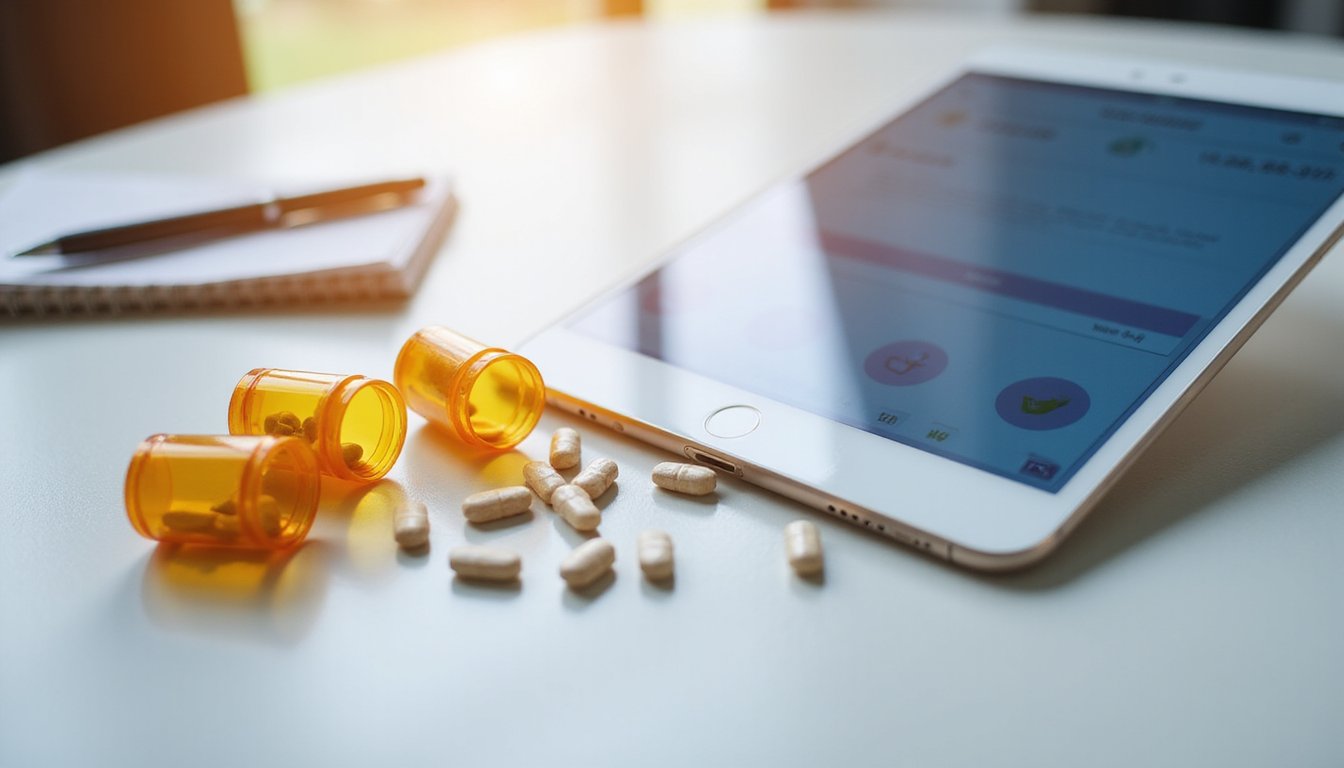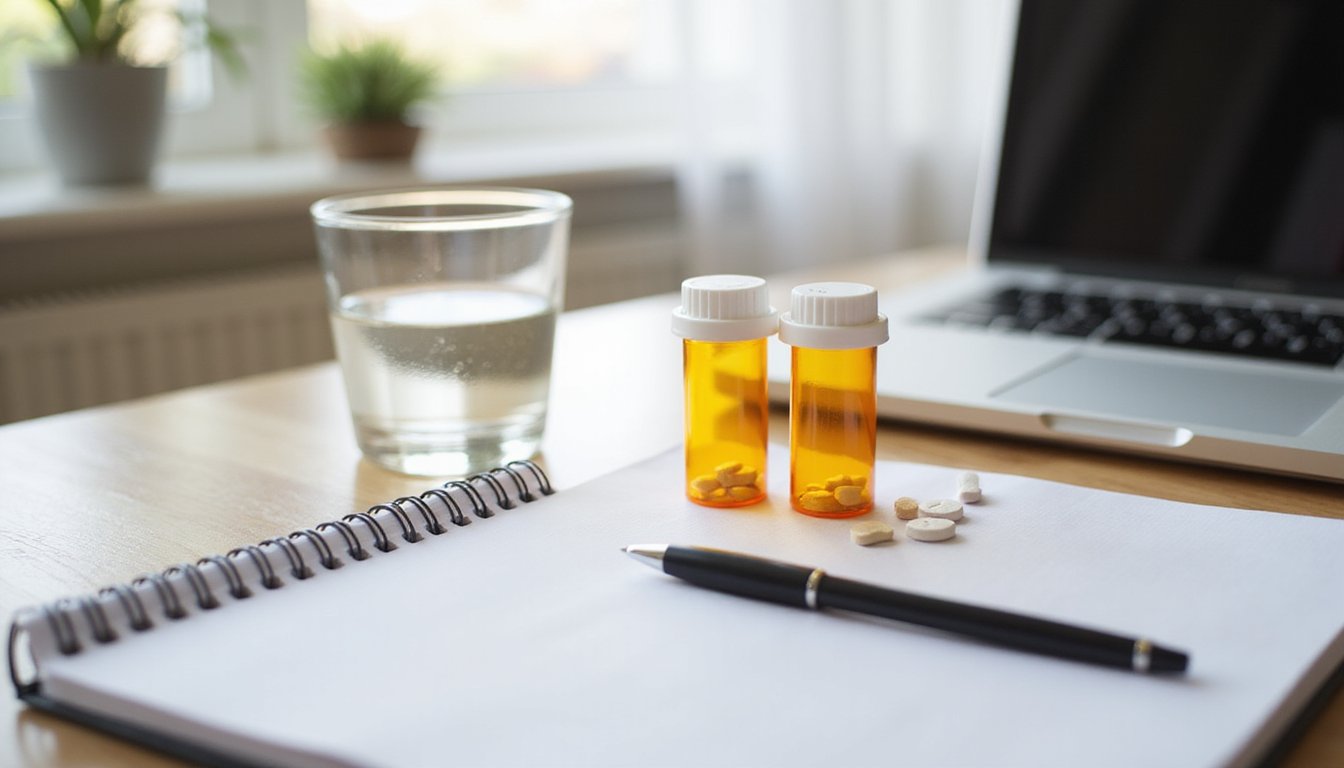Key medications supporting addiction recovery include
buprenorphine and methadone for opioid use disorder, with success rates exceeding 50% when combined with counseling. For
alcohol use disorder, you'll find
acamprosate and naltrexone effective in maintaining abstinence and reducing heavy drinking. Naltrexone also serves as an opioid blocker, while
detoxification medications help manage withdrawal symptoms under medical supervision. Understanding these medication options and their specific applications can substantially enhance your recovery process.
Understanding Medication-Assisted Treatment (MAT)
Regarding addiction recovery, Medication-Assisted Treatment (MAT) stands as a
scientifically proven approach that combines medications with
behavioral therapies. You'll find that MAT addresses both
physical and psychological aspects of addiction, targeting cravings while promoting lasting behavioral change.
Virtual therapy options have made MAT more accessible to individuals in rural areas who previously struggled to access treatment.
Comprehensive counseling services are essential to MAT's effectiveness, addressing psychological, social, and emotional factors. Modern MAT incorporates personalized treatment protocols based on your specific needs, utilizing genetic testing and
AI-driven algorithms to optimize medication selection. The approach now includes cutting-edge techniques like
focused brain stimulation to help manage cravings more effectively. You'll benefit from thorough care that integrates mental health support, vocational assistance, and family services alongside your medication plan. Research consistently shows that MAT increases survival rates and
treatment retention while decreasing criminal activity and relapse risk. You're more likely to maintain long-term recovery with MAT compared to
non-medication interventions.
Medications for Managing Opioid Use Disorder
If you're considering medication treatment for opioid use disorder, you'll find that both
buprenorphine and methadone have proven highly effective, with success rates showing significant reductions in overdose deaths and improved recovery outcomes. Buprenorphine offers greater flexibility with
take-home dosing and a lower risk profile, while methadone's longer clinical history demonstrates consistent effectiveness, particularly for patients requiring more structured support. Unfortunately,
less than 20% of individuals with opioid use disorder receive these potentially life-saving medications. The recently updated FDA protocol now allows for
faster treatment initiation with long-acting injectable buprenorphine options like Sublocade. With over
150 daily deaths from opioid overdoses reported in 2023, expanding medication options remains critical. Naltrexone provides a different approach as an
opioid blocker, though research shows it hasn't matched the
mortality-reduction benefits of buprenorphine or methadone treatments.
Buprenorphine's Role and Benefits
Buprenorphine stands as a cornerstone medication for opioid use disorder treatment, offering unique advantages through its partial agonist mechanism. You'll find it reduces cravings and withdrawal symptoms while blocking other opioids from binding, greatly improving long term outcomes. Clinical studies show it's as cost-effective as methadone but more accessible through diverse providers. Recent Medicare reports indicate that
about 40 percent of enrollees successfully maintain their buprenorphine treatment regimen. A study found that
90 percent of treatment programs actively accept new patients seeking buprenorphine care. Healthcare providers can now prescribe buprenorphine without requiring a
separate DEA waiver.
| Feature |
Benefit |
| Formulations |
Sublingual, injections, implants |
| Safety Profile |
Lower overdose risk, well-tolerated |
| Access |
Telemedicine-friendly through 2025 |
| Effectiveness |
>50% treatment retention rate |
| Support |
Amplified results with counseling |
You can receive buprenorphine through multiple delivery methods, including extended-release options that support consistent treatment adherence. When combined with behavioral therapy, you'll experience better retention rates and improved recovery outcomes. Medicare data confirms decreased illicit opioid use and reduced overdose deaths among patients maintaining treatment.
Methadone Treatment Success Rates
Evidence demonstrates methadone's
remarkable effectiveness in treating
opioid use disorder, with studies showing a 59% reduction in overdose death rates among patients receiving this medication. You'll find that
consistent methadone dosing requirements, including daily visits to certified treatment facilities, lead to significant decreases in illicit opioid use and
improved behavioral outcomes. Recent data from the 2025 clinical trial indicate that
addiction consultation services during hospitalization substantially improve treatment engagement outcomes. While current methadone dispensing policies require in-person administration at federally certified programs, success rates are highest when you receive treatment through facilities using standardized protocols and thorough care approaches. The integration of
therapy and counseling alongside methadone treatment further enhances recovery success and helps patients become productive members of society. Men and adults aged 35-49 years show
higher medication use compared to women and other age groups. Data shows that only
25.1% of adults needing treatment receive medications like methadone, largely due to access barriers. However, when you're able to maintain
long-term treatment adherence, you'll experience better outcomes, including reduced hospital readmissions and stronger connections with support systems and community resources.
Naltrexone Versus Traditional Methods
While methadone has proven effective for many patients, naltrexone offers a distinct approach to opioid use disorder (OUD) treatment through its unique mechanism of blocking rather than activating opioid receptors. Extended-release naltrexone (XR-NTX) demonstrates effectiveness over placebo, though retention rates are lower compared to traditional agonist medications. The evidence shows that
chronic relapsing disorder characterizes opioid dependency, making long-term treatment essential. Recent studies indicate that only
10% of patients opt for XR-naltrexone treatment when entering addiction recovery programs. Healthcare providers report that
more staff attention is required when implementing rapid protocols for XR-naltrexone initiation. You'll face specific induction challenges with XR-NTX, as it requires a 7-10 day opioid-free period to avoid
precipitated withdrawal. Recent advances in withdrawal management protocols show that
rapid initiation (5-7 days) can be as effective as standard protocols, improving access while maintaining safety. XR-NTX may be particularly suitable if you're seeking a
non-opioid treatment option or have
contraindications to agonist therapies. Unlike methadone or buprenorphine, XR-NTX carries
no risk of dependence or potential for misuse.
Treatment Options for Alcohol Use Disorder
Several FDA-approved medications provide effective treatment options for alcohol use disorder (AUD), yet they remain vastly underutilized, with less than 2% of affected individuals receiving
pharmacotherapy. Following evidence-based guidelines, you'll find
acamprosate and naltrexone as prime treatments, with proven efficacy in maintaining abstinence and reducing heavy drinking, respectively.
Disulfiram can be effective when adherence is monitored, while
topiramate shows promise in reducing drinking days. Patient-centered care models emphasize combining these medications with
behavioral therapies for ideal outcomes. Newer options like
semaglutide are showing encouraging results in clinical trials, particularly for managing cravings. Your healthcare provider might also consider
baclofen or gabapentin in specific cases, especially if you have liver disease. The key is working with your healthcare team to find the most fitting medication based on your individual needs and treatment goals.
Supporting Mental Health During Recovery
When you're in recovery, managing
co-occurring mental health conditions like depression and anxiety is vital for long-term success, and your healthcare provider can prescribe appropriate medications that won't interfere with your sobriety. You'll likely benefit from
targeted medications for specific symptoms, such as
SSRIs for depression, anti-anxiety medications that aren't habit-forming, or non-addictive sleep aids to establish healthy rest patterns. Working with mental health professionals who specialize in
addiction medicine guarantees you'll receive medications that effectively treat your symptoms while backing your recovery process.
Managing Depression With Medication
Depression and substance use disorders frequently occur together, creating unique challenges that require extensive treatment approaches. Evidence-based care shows that treating both conditions simultaneously reduces relapse risk and improves recovery outcomes.
| Medication Type |
Primary Use |
Key Benefit |
| SSRIs |
Depression |
Favorable safety profile |
| Bupropion |
Depression/Nicotine |
Supports cessation efforts |
| SPRAVATO |
Treatment-resistant |
Rapid improvement (24hrs) |
| Exxua |
Major Depression |
Novel mechanism |
| Zuranolone |
Postpartum Depression |
Quick oral administration |
You'll find several medication options available to support your recovery path. SPRAVATO can provide relief within 24 hours for treatment-resistant cases, while newer medications like Exxua offer alternatives if traditional treatments aren't effective. Your treatment team will carefully assess your symptoms to distinguish between depression and substance effects, ensuring the most appropriate medication choice for your circumstances.
Anxiety Treatment During Recovery
Managing
anxiety effectively stands as a key component of successful
addiction recovery, particularly since many individuals face both challenges simultaneously. Your healthcare provider will likely recommend
SSRIs or SNRIs as initial medications, as they're effective at reducing anxiety triggers while carrying minimal risk of dependency. You'll find that these medications work well alongside
mindfulness-based stress reduction techniques and
cognitive-behavioral therapy. While
benzodiazepines were once common, they're now largely avoided due to their high addiction potential and challenging withdrawal symptoms. Instead, you'll benefit from an integrated treatment approach that combines non-habit-forming medications with therapy and support groups. Virtual counseling options and digital mental health tools are now readily available, making it easier to maintain consistent anxiety management throughout your recovery path.
Sleep Support Through Pharmaceuticals
While proper sleep remains essential for addiction recovery, choosing appropriate
sleep medications requires careful consideration of their risks and benefits. You'll find several pharmaceutical options available, ranging from non-addictive melatonin to prescription medications like Rozerem, which has a lower
abuse potential than traditional sleep aids. It's imperative to understand that
benzodiazepines like Restoril and
sedative-hypnotics such as Ambien carry significant risks of dependence and cognitive impairment. Before turning to medication, you should investigate
sleep hygiene practices and holistic sleep interventions, including meditation, deep breathing, and behavioral therapies. If medication becomes necessary, work with your healthcare provider to develop a careful
tapering plan and integrate complementary approaches like CBT to address underlying sleep issues without compromising your recovery progress.
The Role of Detoxification Medications
As patients commence their odyssey in the direction of addiction recovery, detoxification medications play a pivotal role in safely managing withdrawal symptoms and reducing the risk of life-threatening complications. Evidence-based protocols utilize FDA-approved medications targeting specific brain receptors, with many showing cross-substance applications.
| Substance Type |
Primary Medications |
Key Benefits |
| Opioids |
Buprenorphine, Methadone |
Reduces cravings, manages withdrawal |
| Alcohol |
Benzodiazepines, Anticonvulsants |
Prevents seizures, reduces delirium risk |
| Stimulants |
Symptom-targeted medications |
Manages anxiety, agitation |
You'll need close medical supervision during detox, as providers carefully monitor your critical signs and adjust medications accordingly. While detox medications effectively address acute withdrawal, they're just the initial step; you'll need thorough treatment for sustained recovery success.
Combination Therapy Approaches
Since research consistently demonstrates
superior outcomes,
combination therapy has emerged as the gold standard in addiction treatment. You'll find that integrating medications with behavioral therapies increases your
recovery success by 27% compared to either approach alone. Modern treatment centers now offer
personalized medication regimens adapted to your genetic profile, alongside targeted psychotherapy options like CBT and DBT. Your treatment may include
AI-powered virtual counseling to complement traditional therapy, making support more accessible whenever you need it. For opioid use disorder, you might receive buprenorphine or naltrexone combined with counseling, while alcohol recovery often pairs medications like acamprosate with behavioral interventions. This extensive approach addresses both physical cravings and psychological dependencies, substantially improving your chances of
sustained recovery.
Latest Advances in Addiction Medicine
Groundbreaking advances in
addiction medicine have transformed treatment options for recovery success. You'll now find novel treatments like
GLP-1 medications that target substance cravings through dopamine pathways, and
psychedelic-assisted therapy using controlled substances like ketamine and psilocybin to address trauma and rewire neural circuits. Genetic testing has revolutionized treatment precision, allowing your healthcare provider to select medications that'll work best for your genetic profile. This
personalized approach helps optimize dosing and minimize side effects for drugs like buprenorphine and naltrexone. New technologies, including
AI-powered counseling apps and virtual reality exposure therapy, complement these medical breakthroughs. You'll also benefit from next-generation overdose prevention tools, including
fentanyl vaccines and advanced naloxone delivery systems, providing additional layers of protection during recovery.
Safe Medication Management Strategies
Safe
medication management forms the cornerstone of successful
addiction recovery treatment. You'll need to work closely with your healthcare team to maintain accurate
medication records and follow strict
medication storage protocols. This includes securing medications properly and implementing
prescription monitoring systems to prevent misuse or diversion. Your treatment plan will be customized to your specific needs, with careful consideration of your medical history, substance use patterns, and any co-occurring disorders. You'll participate in regular monitoring sessions where your healthcare team will track your progress, adjust dosages as needed, and address any side effects. They'll also help coordinate your care across different providers, ensuring everyone involved in your treatment stays informed and aligned with your recovery goals. Remember to always follow proper disposal procedures for
unused medications.
Frequently Asked Questions
Can Medications for Addiction Recovery Affect Fertility or Pregnancy Outcomes?
Yes,
addiction recovery medications can substantially influence your
fertility and pregnancy outcomes. You'll need to attentively deliberate potential medication interactions with reproductive hormones and pregnancy risks. Some medications like
methadone and buprenorphine have established safety profiles during pregnancy, while others like naltrexone and psychedelics aren't recommended.
Conception planning during recovery should involve your healthcare provider to guarantee proper timing and medication adjustments for the safest possible outcomes for both you and your future baby.
How Do Insurance Companies Typically Cover Addiction Recovery Medications?
Your
insurance coverage for addiction recovery medications depends on your plan type and provider networks. Most insurers must provide coverage due to federal
parity laws, with Medicare, Medicaid, and private plans offering different coverage levels. You'll typically face some out-of-pocket costs through copays or coinsurance, but the 2025 Medicare Part D cap limits these to $2,000 annually.
Prior authorization may be required for certain medications, so check your specific plan benefits.
What Are the Success Rates for Different Medication Combinations?
You'll find the highest medication efficacy with
buprenorphine plus behavioral therapy, showing 60-80% abstinence rates after 6-12 months. Through proper dosage optimization,
methadone maintenance achieves 70% retention at one year. For alcohol recovery, combining
acamprosate or disulfiram with therapy reduces relapse by 40-50%. The newest combinations, like
psilocybin/CBT protocols, demonstrate promising 50-60% abstinence rates at 6 months, while personalized medicine approaches can amplify, elevate, or enhance success rates by 10-20%.
Are There Genetic Factors That Influence Medication Effectiveness in Addiction Recovery?
Yes, your
genetic predispositions considerably influence how well addiction medications work for you. Your CYP450 enzymes and opioid receptor genes directly affect drug metabolism and effectiveness. Drug-gene interactions can determine whether you'll respond better to certain treatments - for example, if you have specific
OPRM1 variants, you're more likely to succeed with naltrexone. Understanding your genetic profile can help your healthcare provider select the most effective medication and dosage for your recovery.
Can Alternative or Herbal Medicines Be Safely Combined With Addiction Medications?
You'll need to be extremely cautious when combining
botanical supplements with
addiction medications. Most herbal remedies haven't been proven safe for concurrent use with FDA-approved treatments. You should always consult your
healthcare provider before adding any supplements, as they can interact dangerously with addiction medications. St. John's wort, for example, can alter medication levels, while sedative herbs like kava may increase CNS depression risks. Full disclosure to your treatment team is essential.
 Regarding addiction recovery, Medication-Assisted Treatment (MAT) stands as a scientifically proven approach that combines medications with behavioral therapies. You'll find that MAT addresses both physical and psychological aspects of addiction, targeting cravings while promoting lasting behavioral change. Virtual therapy options have made MAT more accessible to individuals in rural areas who previously struggled to access treatment. Comprehensive counseling services are essential to MAT's effectiveness, addressing psychological, social, and emotional factors. Modern MAT incorporates personalized treatment protocols based on your specific needs, utilizing genetic testing and AI-driven algorithms to optimize medication selection. The approach now includes cutting-edge techniques like focused brain stimulation to help manage cravings more effectively. You'll benefit from thorough care that integrates mental health support, vocational assistance, and family services alongside your medication plan. Research consistently shows that MAT increases survival rates and treatment retention while decreasing criminal activity and relapse risk. You're more likely to maintain long-term recovery with MAT compared to non-medication interventions.
Regarding addiction recovery, Medication-Assisted Treatment (MAT) stands as a scientifically proven approach that combines medications with behavioral therapies. You'll find that MAT addresses both physical and psychological aspects of addiction, targeting cravings while promoting lasting behavioral change. Virtual therapy options have made MAT more accessible to individuals in rural areas who previously struggled to access treatment. Comprehensive counseling services are essential to MAT's effectiveness, addressing psychological, social, and emotional factors. Modern MAT incorporates personalized treatment protocols based on your specific needs, utilizing genetic testing and AI-driven algorithms to optimize medication selection. The approach now includes cutting-edge techniques like focused brain stimulation to help manage cravings more effectively. You'll benefit from thorough care that integrates mental health support, vocational assistance, and family services alongside your medication plan. Research consistently shows that MAT increases survival rates and treatment retention while decreasing criminal activity and relapse risk. You're more likely to maintain long-term recovery with MAT compared to non-medication interventions.
 When you're in recovery, managing co-occurring mental health conditions like depression and anxiety is vital for long-term success, and your healthcare provider can prescribe appropriate medications that won't interfere with your sobriety. You'll likely benefit from targeted medications for specific symptoms, such as SSRIs for depression, anti-anxiety medications that aren't habit-forming, or non-addictive sleep aids to establish healthy rest patterns. Working with mental health professionals who specialize in addiction medicine guarantees you'll receive medications that effectively treat your symptoms while backing your recovery process.
When you're in recovery, managing co-occurring mental health conditions like depression and anxiety is vital for long-term success, and your healthcare provider can prescribe appropriate medications that won't interfere with your sobriety. You'll likely benefit from targeted medications for specific symptoms, such as SSRIs for depression, anti-anxiety medications that aren't habit-forming, or non-addictive sleep aids to establish healthy rest patterns. Working with mental health professionals who specialize in addiction medicine guarantees you'll receive medications that effectively treat your symptoms while backing your recovery process.
 As patients commence their odyssey in the direction of addiction recovery, detoxification medications play a pivotal role in safely managing withdrawal symptoms and reducing the risk of life-threatening complications. Evidence-based protocols utilize FDA-approved medications targeting specific brain receptors, with many showing cross-substance applications.
As patients commence their odyssey in the direction of addiction recovery, detoxification medications play a pivotal role in safely managing withdrawal symptoms and reducing the risk of life-threatening complications. Evidence-based protocols utilize FDA-approved medications targeting specific brain receptors, with many showing cross-substance applications.









